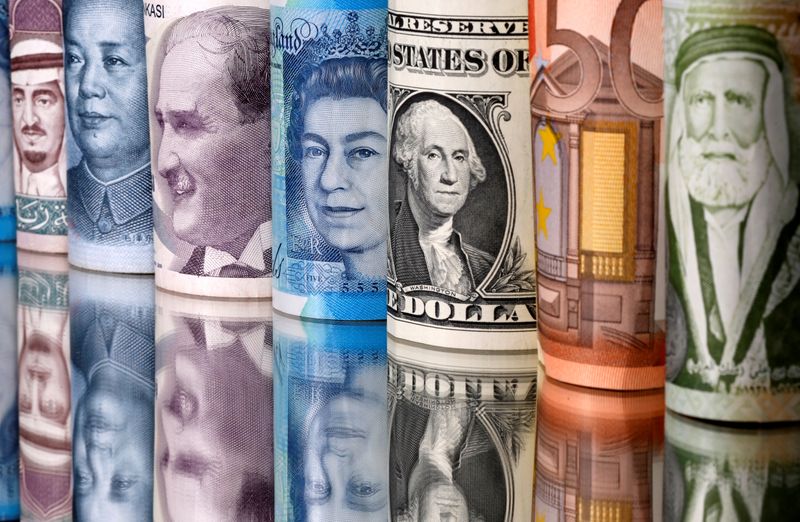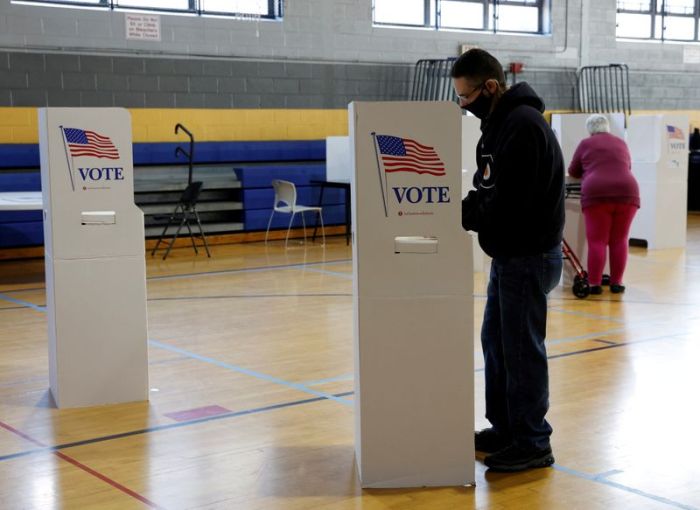NEW YORK (Reuters) – The dollar fell to a one-week low on Tuesday in quiet trading, still weighed down by optimism over a second coronavirus vaccine, as the outlook for the currency remained downbeat with the Federal Reserve and U.S. Congress poised to do more to ease COVID-19’s economic damage.
The euro, sterling, Swiss franc, and yen rose against the dollar, while the Chinese yuan hit its highest against the U.S. currency since June 2018.
Drugmaker Moderna <MRNA.O> became the second U.S. pharmaceutical company in a week to report positive results from trials of a COVID-19 vaccine, considered necessary to eradicate the pandemic.
Policymakers’ response to a record number of coronavirus cases, hospitalisations and deaths in several U.S. states is likely to remain of greater concern.
“The key story is still about COVID-19 and the short-term pressures it’s going to put not just on the U.S, but abroad. And it’s going to force Congress or the Federal Reserve to do more,” said Edward Moya, senior market analyst at OANDA in New York.
“Whether we get a stimulus after (President-elect) Joe Biden takes office or whether the Fed does more, the trajectory for the dollar is pretty clear: it’s going to be much lower.”
In afternoon trading, the dollar index <=USD> fell to a one-week low against a basket of major currencies, and last stood at 92.426, down 0.1%.
Federal Reserve Chairman Jerome Powell said on Tuesday the Fed is committed to “using all of our tools to support the recovery for as long as it takes until the job is well and truly done.” He made the comments at a virtual event hosted by the Bay Area Council in California.
Amo Sahota, executive director at currency advisory firm Klarity FX in San Francisco, said central bankers are “trying to recalibrate market expectations about a post-COVID world.”
He added that Powell has indicated that “once we’re through this COVID period and we have a vaccine, we’re not going to have the same economy as before.”
Data showing U.S. retail sales rising less than expected in October had minimal dollar impact. Retail sales rose 0.3% last month, the Commerce Department said on Tuesday. Economists polled by Reuters had forecast retail sales would gain 0.5% in October.
Against the yen, the dollar fell 0.4% to 104.20 <JPY=EBS>, while the euro inched higher by 0.1% to $1.1862 <EUR=EBS>.
The euro, however, fell against a broadly stronger pound, which gained on media reports that Britain could reach a post-Brexit trade agreement with the European Union by early next week. [GBP/]
The euro was last down 0.3% versus sterling at 89.47 pence <EURGBP=EBS>.
The offshore yuan <CNH=EBS>, meanwhile, hit its highest since June 2018 against the dollar at 6.5457, as positive economic data continued to support the Chinese currency.
(Reporting by Gertrude Chavez-Dreyfuss; Editing by Kirsten Donovan and Nick Zieminski)
























